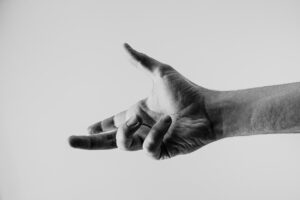
When someone is experiencing an emergency, sometimes bystanders do not know how to respond to the situation. While calling the authorities is an important step and the right thing to do, sometimes more assistance is critical in preventing a victim from suffering significant injuries. The American Heart Association (AHA) states that bystander CPR can significantly improve a cardiac victim’s chance of survival. In fact, the chances of a full recovery are doubled or tripled. When a bystander voluntarily helps another person who is in distress, there are legal protections for the Good Samaritan.
Nevada’s Good Samaritan Law
All 50 states have Good Samaritan Laws on the books. Nevada’s Good Samaritan law protects any non-paid person who attempts to help another person when an emergency arises, even if the Good Samaritan makes mistakes during the attempt to assist. What happens if people become hesitant to assist a stranger because they are worried about incurring liability? There are several ways in which a person can assist another and still remain protected under Nevada’s Good Samaritan law, including:
- Pushing on a person’s chest to perform CPR;
- Removing a person’s upper clothing to attach AED pads;
- Applying pressure due to a serious bleed anywhere on the body of an unconscious person;
- Performing chest thrusts or back blows on a choking person who is unable to speak;
- Dragging or carrying an unconscious person away from a dangerous area;
- Approaching a person who has collapsed.
Other Factors to Consider
It is no surprise that preserving the dignity of a person who is experiencing an emergency in a first aid scenario should always be considered. There are many things that can be done to preserve a victim’s dignity. First, a first-aider can ask bystanders to keep the crowds of people away. Second, they can instruct others to put away their cell phones unless they are contacting 9-1-1 for further emergency assistance. Third, the first-aider can use jackets or blankets to cover any unnecessary exposure of a victim being assisted. Finally, choosing not to comment on the seriousness of the situation, the persons’ clothing or weight, or using derogatory terms are all helpful because hearing is the last sense to disappear in emergency situations.
If the victim is conscious but refuses to consent to getting help, you will need to back off. Sometimes when someone is in medical shock, a victim may be confused or even become aggressive. Even if it is obvious that the person needs medical assistance, if they choose to refuse help, you cannot proceed. The exception to this is if the person is endangering others.
Notably, if illegal drug use is involved Nevada’s Good Samaritan law protects the person seeking help for someone who is experiencing a drug-related medical emergency from being charged with narcotics-related offenses. This includes scenarios where there is a potential opioid overdose, an increasing concern across the United States.
Getting Help from a Personal Injury Lawyer
While there are many situations where a Good Samaritan is protected under Nevada law, there are exceptions. A personal injury lawyer is the best person to assess whether gross negligence or recklessness was involved and removes legal protections for the first-aider. If you think someone made your injuries worse or caused you injuries due to neglect or poor judgment, contact the attorneys at H&P Law today.




